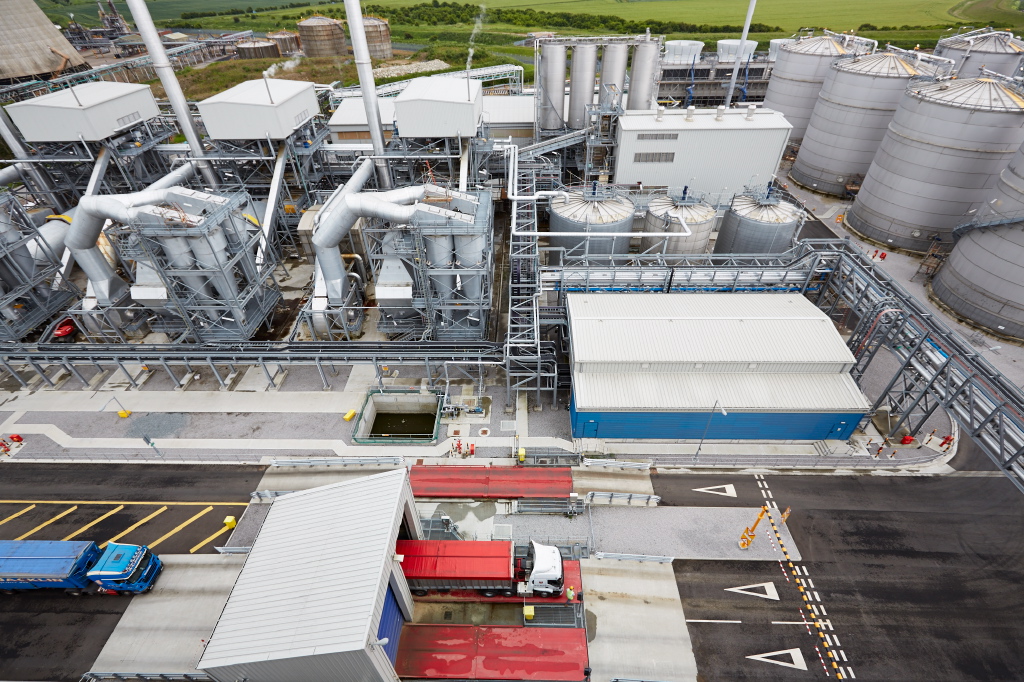Associated British Foods (ABF) has the announced closure of Vivergo Fuels, its UK bioethanol production plant in Hull. The news comes after the Government decided to not directly fund the bioethanol industry which they say would not be ‘would not provide value for the taxpayer.’
The UK’s bioethanol industry, of which Vivergo is the largest producer, was plunged into uncertainty following the US-UK trade deal which removed a 19 per cent tariff on ethanol imports coming in from the US. Vivergo warned they would be unable to compete with the cheaper, and less regulated imports without the tariff.
In a statement, ABF said: “The decision to close the plant follows extensive discussions with the Government to find a regulatory and financial solution that would enable Vivergo to operate on a profitable and sustainable basis. These discussions were necessary because Vivergo’s commercial viability was undermined by the way in which UK regulations were being applied to favour foreign producers, an issue subsequently made much worse by the Government’s decision in May to remove the tariffs on US bioethanol coming into the UK market.
“These two actions meant Vivergo would inevitably continue to be heavily loss-making without corrective Government intervention to provide short-term financial support and a longer-term regulatory solution. The Government has decided not to offer either short-term financial support or the long-term regulatory certainty we sought. Given these circumstances and the financial losses already incurred, ABF has therefore determined in the interests of its shareholders that it cannot continue to support Vivergo.
“ABF will start an orderly closure process immediately. Vivergo will have ceased all production of bioethanol and animal feed by 31 August 2025.”
Ben Hackett, Managing Director of Vivergo Fuels, said: “The Government’s failure to back Vivergo has forced us to cease operations and move to closure immediately. This is a flagrant act of economic self-harm that will have far-reaching consequences.
“This is a massive blow to Hull and the Humber. We have fought from day one to support our workers and we are truly sorry that this is not the outcome any of us wanted. This decision by ministers will have a huge impact on our region and the thousands of livelihoods in the supply chain that rely on Vivergo, from farmers to hauliers and engineers.
“We did everything we possibly could to avoid closure, but in the end it was the Government that decided the British bioethanol sector was something that could be traded away with little regard for the impact it would have on ordinary hard-working people. We did not go down without a fight and I hope that the noise we generated over the past three months will make the Government think twice before it decides to sign away whole industries as part of future trade negotiations.”
Upon announcing they would not be intervening to save Vivergo, and the wider industry, a Government spokesperson said: “This Government will always take decisions in the national interest. That’s why we negotiated a landmark deal with the US which protected hundreds of thousands of jobs in sectors like auto and aerospace.
“We have worked closely with the companies since June to understand the financial challenges they have faced over the past decade, and have taken the difficult decision not to offer direct funding as it would not provide value for the taxpayer or solve the long-term problems the industry faces. We recognise this is a difficult time for the workers and their families and we will work with trade unions, local partners and the companies to support them through this process. We also continue to work up proposals that ensure the resilience of our CO2 supply in the long-term in consultation with the sector.”
By: Andrew Spence, LDRS






























